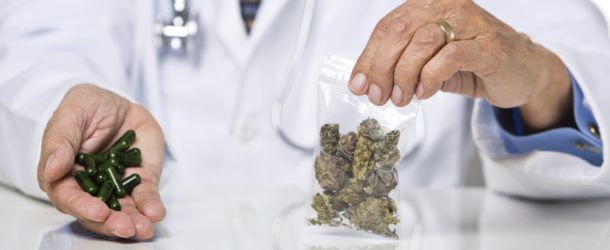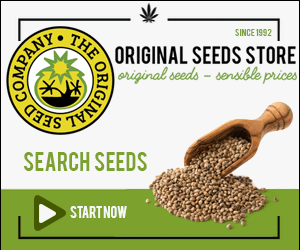The Institute of Medicine of The National Academies reports about 100 million Americans suffer from pre-approved conditions requiring specialized cannabis medication. It also approximates that lost productivity among workers with debilitating conditions amounts to $50 billion per year. Clearly, some conditions have a huge impact on individuals and the economy as well.
Luckily, medical marijuana has come to the rescue. It’s believed medical cannabis can treat symptoms of over 20 ailments. Specifically, the use of marijuana provides effective relief from side effects of chemotherapy, prevents nausea and vomiting, relieves pain and increases appetite.
Unfortunately, not all physicians are open to prescribing cannabis as an option. This is often because they have not educated themselves on the potential benefits of medical marijuana.
Behind Doctors’ Hesitance to Prescribe Medical Marijuana
Doctors may recognize their patients require more than just pharmacy prescriptions. But because of the way the laws are written, they’re hesitant or perhaps even fearful of prescribing marijuana. Implementation of the law may mean the doctor is fined, arrested, loses their license, or all three.
Additionally, more and more doctors are concerned about the potential for medical marijuana abuse or dependence, where a person develops withdrawal symptoms when they stop using marijuana. Some are even concerned about overdose or death related to cannabis. That’s why many physicians say they feel caught in the middle, not sure of the difference between legal medical practice and what could get them in trouble.
Aside from that, there are also drug seekers who show up in doctors’ offices pretending they have a medical need for prescription marijuana. It’s therefore up to the physician to determine which patient does have a need versus one who doesn’t. This can be particularly unfair to genuine patients looking for help.
Lack of Information Is Troubling
Typically, doctors are very uneducated about medical cannabis. The vast majority of physicians have little to no knowledge of it. And because they’re responsible for their patients’ health care, doctors can be very unwilling to recommend something they aren’t sure of.
For instance, most physicians don’t know whether marijuana is the best way to treat a condition, what dose is recommended or whether a patient should smoke it, vaporize it, eat it or rub it. They weren’t trained to have such discussions. And because the topic is not covered in medical school, veteran doctors as well as younger ones consider themselves ill-equipped to deal with pot-related questions.
Moreover, most physicians are reluctant to put their licenses on the line. Even if they believe medical cannabis could help their patients, most aren’t willing to sign the documents to support the patient. That’s typically the biggest problem — a lack of knowledge by the physicians.
What’s a Patient to Do?
Luckily for you, this is where MarijuanaDoctors.com can help. We get a lot of referrals from doctors who have heard about us and are willing to send their patients to our directory because they know we have strictly vetted, reputable medical marijuana doctors.
In the past decade, there has been a major explosion when it comes to medical cannabis. We started off by helping people obtain licenses and educating them on how to talk with their doctors. What we found was it was still really tough for them to convince their doctors to give them the go-ahead to obtain their medication.
That’s when we decided to seek out and vet qualified clinics. Instead of sending patients to doctors who know nothing about marijuana, we would have them approach the physicians in our network who are familiar with medical marijuana and willing to help patients get their medicine. Here are a few steps you can take to get medical marijuana the right way.
1. Make Sure Marijuana Is Available in Your State
Most states have launched medical marijuana programs, but the medicine is not available in all states. If you’re interested in accessing marijuana to treat your condition, you first need to find out what your state law says regarding the use of weed.
States with medical marijuana programs include Arizona, California, Montana, Connecticut, New Hampshire, Delaware, Vermont, Alaska, Hawaii, Minnesota, and Michigan. You can consult our full list of all legal medical marijuana states to see if your state is among them.
2. Find Out the Conditions That Are Pre-Approved
You will not qualify for weed because you want to use it for recreational purposes. Medical marijuana is only available to patients with pre-approved conditions.
In general, these conditions include:
- Chemo-related nausea
- Chronic pain from arthritis
- Migraines
- Crohn’s disease
- AIDS
- Hepatitis C
- Asthma
- Multiple sclerosis
- Epilepsy
- Alzheimer’s disease
- Any terminal illness
3. Seek Out Prescriptions From Our Physicians
We have physicians in our network who participate in marijuana medical programs in every state across America. If you’re interested in using medical cannabis to relieve any of the conditions listed above, contact the doctor nearest you by utilizing our search services.
Make an appointment with a physician and discuss your ailments along with your desire to use medical marijuana. If the doctor thinks your condition can be improved by medical marijuana, you’ll be able to get a prescription. You can use this prescription to register as a legal user with your state and purchase medicine from any of the dispensaries in our directory.
4. Register As a Medical Marijuana User
Depending on what state you live in, registering as a medical cannabis user may be voluntary or mandatory. The main purpose of registration is to identify you to law enforcement as a registered user of medical marijuana. Another reason for registering is to avoid being arrested. This means you can always take marijuana without getting arrested by the police.
5. Find a Dispensary Near You
All our dispensaries are organizations registered with the state to provide high-quality medical marijuana to registered patients. After getting a state-issued ID card, you can always access the dispensary closest to you to make your medical purchases. Our dispensaries will issue you a membership card to make it easy to recognize you as a registered patient.
6. What Products to Expect at the Dispensary
There are various ways you can consume marijuana depending on your needs and condition. First, there are combustible flowers and concentrates consumed in the traditional way through smoking. Then there are non-combustible methods, such as using vaporizers.
Non-combustible consumption means only THC is vaporized and inhaled, without the carcinogens from smoke. Edibles and drinks are also available. If you don’t like smoking, this is your best option. Finally, there are creams, analgesics and sprays where THC can be absorbed through the skin for topical treatments.
7. Use Your Medicine Responsibly
Even if marijuana is legal in your state, you still need to be responsible when using it. Always use your medicine in private and avoid smoking in places where it is not allowed. Anytime you’re traveling with your medicine, keep your ID card handy. Treat your medical marijuana the same way you treat alcohol and other prescription drugs. In short, it’s best to use it in the safety of your home.
By using these tips, you can help yourself if your doctor refuses to prescribe you marijuana. You can always consult MarijuanaDoctors.com with further questions as well.












Comments are closed.